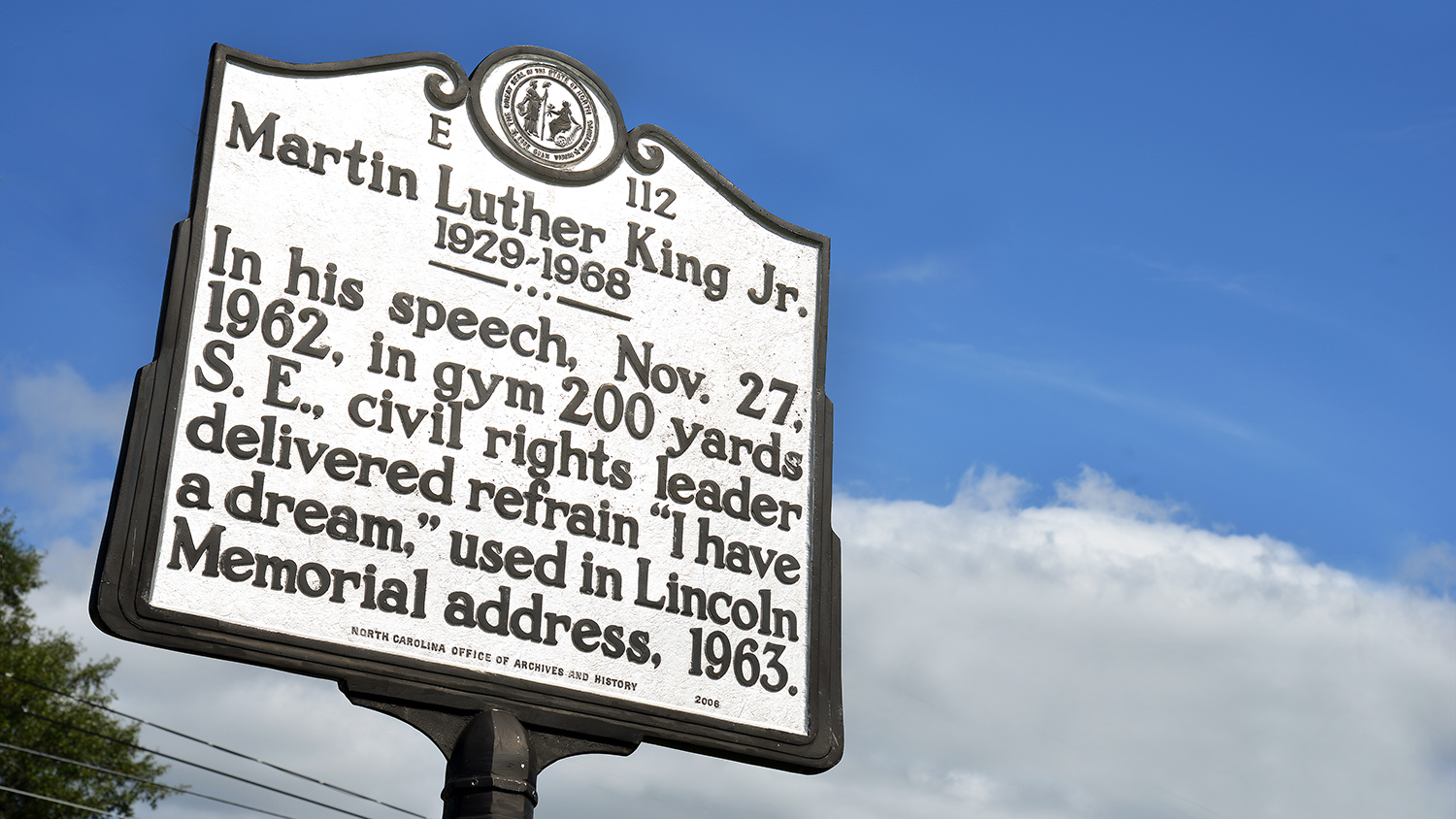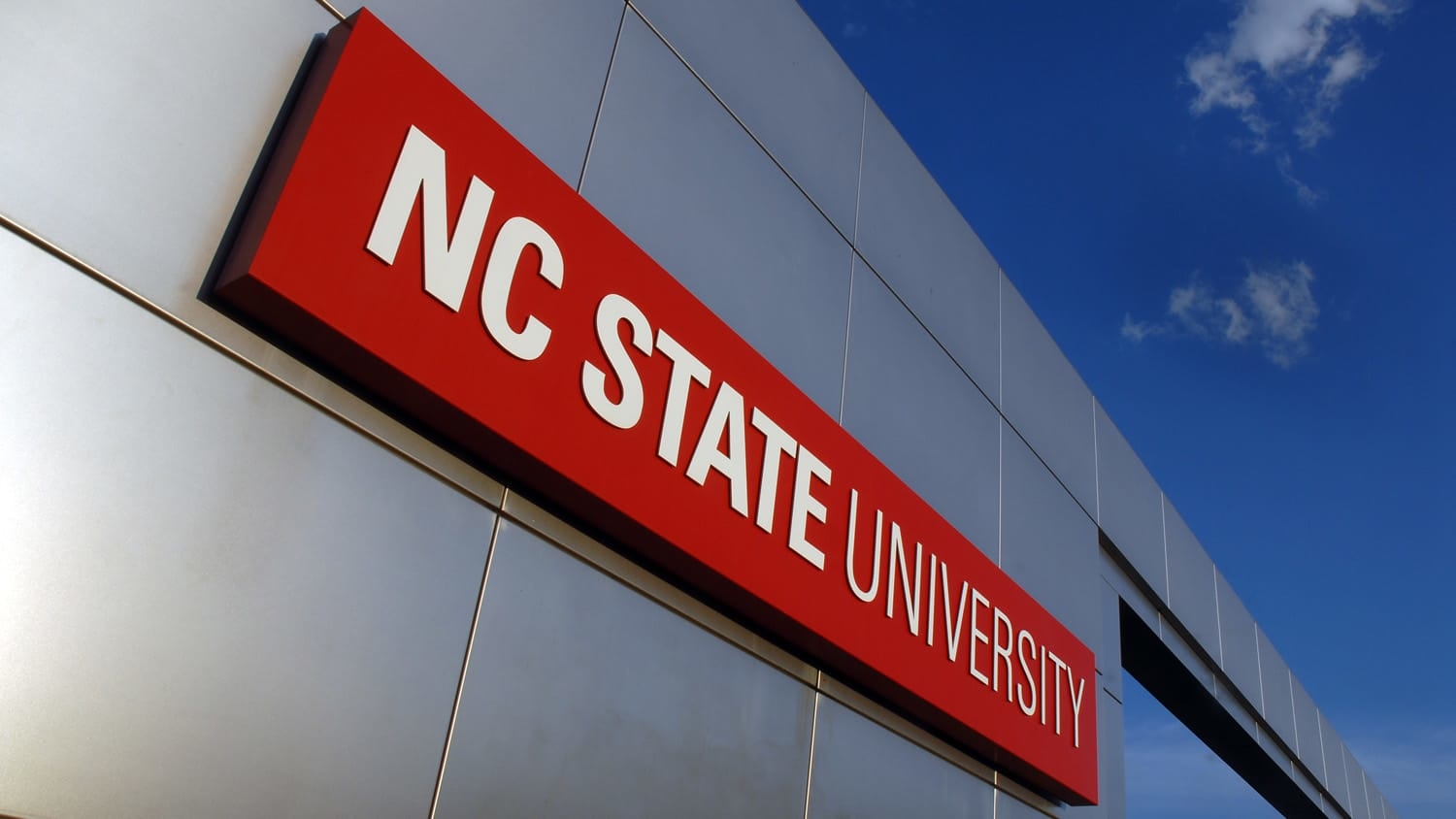Describing the Dream: Studying Martin Luther King Jr. at NC State
Our researchers, digital humanities experts and musicians keep finding new ways to explore King's famous dream.

This week and next, NC State will celebrate the life and legacy of Martin Luther King Jr. with events across campus — including service days, an award-winning virtual reality experience and a commemoration speech from Symone Sanders, political analyst and former national press secretary for the Bernie Sanders 2016 presidential campaign.
Those events represent the continuation of years of research and exploration at NC State into the civil rights leader’s legacy and rhetoric, and his ties to North Carolina. Efforts include the Virtual MLK Project, which uses advanced digital and audio technology to recreate King’s “Fill Up the Jails” speech, delivered in Durham, N.C., in 1960; and the discovery by Jason Miller, a professor in the Department of English, of a lost audio recording of King’s address to a high school gymnasium in Rocky Mount, N.C., in 1962. The latter speech prefigures King’s most famous words: “I have a dream.”
“Documenting when King’s first “I Have a Dream” speech was delivered in North Carolina adds to our state’s rich history of playing a major role in the civil rights movement,” says Miller. “Along with the formation of the Student Nonviolent Coordinating Committee starting at Shaw University in 1960, and the Greensboro sit-ins starting here, the birth of King’s signature statement in our state reminds us that North Carolina was at the very forefront of the civil rights movement of the 1960s.”
The birth of King’s signature statement here reminds us that North Carolina was at the very forefront of the civil rights movement of the 1960s.
Last year, as part of the commemoration of the 50th anniversary of King’s death by assassination, Miller and others restaged the Rocky Mount speech in the original high school gym where it was delivered. The event is covered in detail in the current issue of Our State magazine. The Raleigh Civic Chamber Orchestra — a program of NC State’s Department of Music — also marked the anniversary with an evening of music by African-American composers in Stewart Theatre. The concert included the world premiere of a specially commissioned piece by New York-area composer Jeff Scott.
For Miller, events like these — and the research and scholarship that underpins them — help to remind us of the vitality of the civil rights movement’s message.
“The movement’s call for voting rights is still very much at the center of our national discussion of how our democracy functions,” Miller says. “More than just a vision, King’s dream simultaneously served as a critique of America for failing to deliver on promises found in the Constitution.”
That vision, and that critique, are sustained in part by the researchers, digital humanities experts, musicians and more who keep delving into King’s dream — and vividly bringing it to life.
- Categories:


